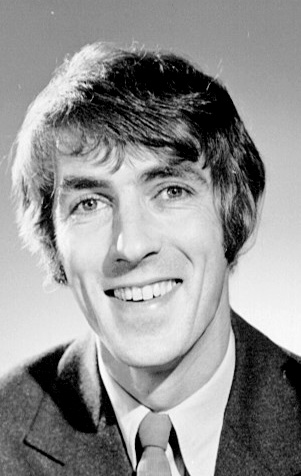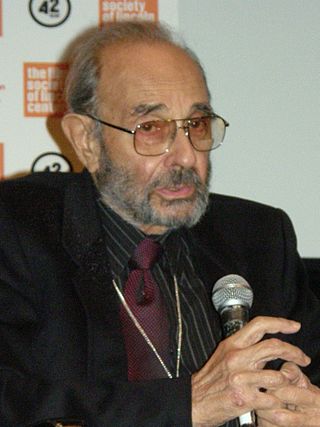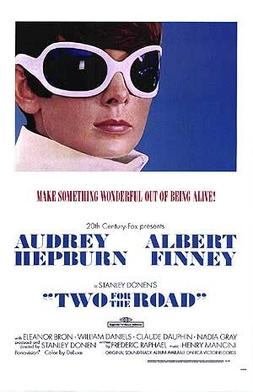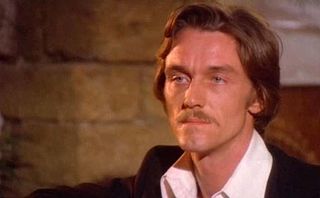
Peter Edward Cook was an English comedian, actor, satirist, playwright and screenwriter. He was the leading figure of the British satire boom of the 1960s, and he was associated with the anti-establishment comedic movement that emerged in the United Kingdom in the late 1950s.

Dudley Stuart John Moore CBE was an English actor, comedian, musician and composer. Moore first came to prominence in the UK as a leading figure in the British satire boom of the 1960s. He was one of the four writer-performers in the comedy revue Beyond the Fringe from 1960 that created a boom in satiric comedy. With a member of that team, Peter Cook, Moore collaborated on the BBC television series Not Only... But Also. As a popular double act, Moore's buffoonery contrasted with Cook's deadpan monologues. They jointly received the 1966 British Academy Television Award for Best Entertainment Performance and worked together on other projects until the mid-1970s, by which time Moore had settled in Los Angeles to concentrate on his film acting.

Beyond the Fringe was a British comedy stage revue written and performed by Alan Bennett, Peter Cook, Jonathan Miller, and Dudley Moore. It debuted at the 1960 Edinburgh Festival and went on to play in London's West End and then in America, both on tour and on New York's Broadway in the early 1960s. Hugely successful, it is widely regarded as seminal to the "satire boom", the rise of satirical comedy in 1960s Britain.

Eleanor Bron is an English stage, film and television actress, and an author. Her film roles include Ahme in the Beatles musical Help! (1965), the Doctor in Alfie (1966), Margaret Spencer in Bedazzled (1967), and Hermione Roddice in Women in Love (1969). She has appeared in television series such as Yes Minister, Doctor Who, and Absolutely Fabulous.

Pete and Dud were characters played by the comedians and entertainers Peter Cook and Dudley Moore.

Stanley Donen was an American film director and choreographer. He received the Honorary Academy Award in 1998, and the Career Golden Lion at the Venice Film Festival in 2004. Four of his films have been inducted into the National Film Registry at the Library of Congress.
Not Only... But Also is a BBC British sketch comedy show starring Peter Cook and Dudley Moore that aired in three series between 1964 and 1970.

Two for the Road is a 1967 romantic comedy-drama directed and produced by Stanley Donen, starring Audrey Hepburn and Albert Finney. The film tells the story of a married couple who reflect on their twelve-year relationship while on a road trip from England to the French Riviera. As they survey their foundering marriage in the present, the evolution of their relationship reveals itself through vignettes from four previous trips they took along the same route. The film was made from an original screenplay by Frederic Raphael. Supporting cast members include Eleanor Bron, William Daniels, Claude Dauphin, and Nadia Gray. Two for the Road was Hepburn's penultimate film before her semi-retirement in early 1967.
"One Leg Too Few" is a comedy sketch written by Peter Cook and most famously performed by Cook and Dudley Moore. It is a classic example of comedy arising from an absurd situation which the participants take entirely seriously, and a demonstration of the construction of a sketch in order to draw a laugh from the audience with almost every line. Peter Cook said that this was one of the most perfect sketches he had acted in, and that it amazed him, later in his career, that he could have created it so young, at the age of 17 or 18.

Bedazzled is a 2000 fantasy romantic comedy film directed by Harold Ramis and starring Brendan Fraser and Elizabeth Hurley. It is a remake of the 1967 British film of the same name, written by Peter Cook and Dudley Moore, which was itself a comic retelling of the Faust legend.

Not Only But Always is a British TV movie, originally screened on the Channel 4 network in the UK on 30 December 2004.

Saturn 3 is a 1980 British science fiction film produced and directed by Stanley Donen, and starring Farrah Fawcett, Kirk Douglas and Harvey Keitel. The screenplay was written by Martin Amis, from a story by John Barry. Though a British production, made by Lew Grade's ITC Entertainment and shot at Shepperton Studios, the film has an American cast and director.

Indiscreet is a 1958 British romantic comedy film produced and directed by Stanley Donen, and starring Ingrid Bergman and Cary Grant.

Academic Festive Overture, Op. 80, by Johannes Brahms, was one of a pair of contrasting concert overtures — the other being the Tragic Overture, Op. 81. Brahms composed the work during the summer of 1880 as a tribute to the University of Breslau, which had notified him that it would award him an honorary doctorate in philosophy.

John Steiner was an English actor. Tall, thin and gaunt, he attended the Royal Academy of Dramatic Art and performed on-stage for the Royal Shakespeare Company, but was best known to audiences for his roles in Italian films, several of which became cult classics.

The Magnificent Seven Deadly Sins is a 1971 British sketch comedy film directed and produced by Graham Stark. Its title is a conflation of The Magnificent Seven and the seven deadly sins. It comprises a sequence of seven sketches, each representing a sin and written by an array of British comedy-writing talent, including Graham Chapman, Spike Milligan, Barry Cryer and Galton and Simpson. The sketches are linked by animation sequences overseen by Bob Godfrey's animation studio. The music score is by British jazz musician Roy Budd, cinematography by Harvey Harrison and editing by Rod Nelson-Keys and Roy Piper. It was produced by Tigon Pictures and distributed in the U.K. by Tigon Film Distributors Ltd.
Chris Karan is a Britain-based Australian jazz drummer and percussionist of Greek descent.

The Hound of the Baskervilles is a 1978 British comedy film spoofing the 1902 novel The Hound of the Baskervilles by Sir Arthur Conan Doyle. It starred Peter Cook as Sherlock Holmes and Dudley Moore as Dr. Watson. A number of other well-known British comedy actors appeared in the film including Terry-Thomas, Kenneth Williams and Denholm Elliott.
Film Stars is a well-known comedy sketch by Peter Cook and Dudley Moore. It originally featured on their BBC sketch show Not Only... But Also (1965) and was subsequently performed many times on stage by the duo.















